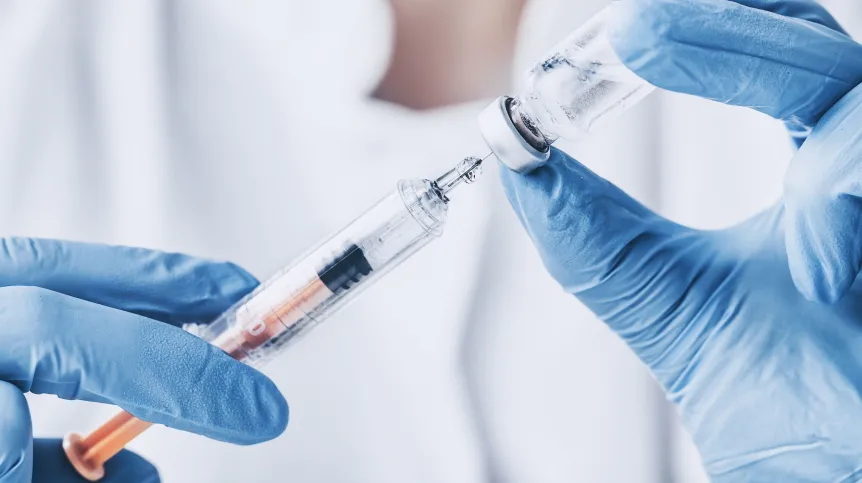
A leading biologist has hit out at ‘fake news’ that claims people who have been double vaccinated against COVID-19 are now being hospitalised with the virus.
In a scathing attack, Dr. Piotr Rzymski from the Poznan University of Medical Sciences slammed widespread reports on social media as being both ‘unsubstantiated and false’.
In response to one claim which said vaccinated people are more at risk of a severe course of the disease in the case of SARS-CoV-2 coronavirus infection, the expert responded: “If this was the case, having implemented a vaccination programme in Poland since the end of 2020, we should’ve seen a systematic increase in hospitalisation of vaccinated people with severe COVID-19. And nothing like that has been recorded.”
He added: “In our study, fully vaccinated patients accounted for only 0.15 percent patients with COVID-19 hospitalised in four hospitals. This indicates that the vaccines against SARS-COV-2 are highly effective and protect against severe COVID-19.”
According to his study published in the journal Vaccines hospitalizations of fully vaccinated people are very rare and confirms the high effectiveness of vaccination in preventing the severe course of the disease.
The scientist analysed hospitalisations of people vaccinated with one or two doses of the vaccine in four large clinical centres: in Poznań, Białystok, Wrocław and Kielce. The analysis covered the period from the end of 2020, when the vaccination program was launched, until the end of May 2021.
He said: “In this period, over 7,500 patients with severe COVID-19 were hospitalised in four centres and only 92 of those patients (slightly over 1 percent) had been vaccinated with at least one dose of the vaccine.
“A large percentage of them were people with risk factors of severe course of COVID-19, including the elderly, people with obesity and coexisting diseases.
“In more than half of patients from this group, the first symptoms of SARS-CoV-2 infection occurred within 14 days of administration of the first dose.
“These people did not develop even partial resistance after vaccination, because on the basis of clinical trials, we know that at least two weeks after vaccination are needed for the IgG class antibodies against the coronavirus spike protein to appear.
“Unfortunately, some of us incorrectly assume that after leaving the vaccination centre they are somehow protected and disregard the sanitary recommendations, exposing themselves to infection and severe course of the disease.”
But of the 0.15 percent who developed COVID-19 symptoms more than 14 days after receiving the second dose of the vaccine and who were hospitalised due to infection, some were non-responders.
Rzymski said: “They were patients who, at the time of admission to the hospital, had no antibodies against the spike protein, despite having received two doses of the vaccine. This means that these people did not react to vaccination at all.”
He explained that they were people with impaired resistance due to long-term use of immunosuppressive drugs, people after transplants, with serious immunodeficiency, cancer patients after intense treatment.
He said: “This study confirms the high effectiveness of vaccines, the main purpose of which is to alleviate clinical effects of infection by supporting the body's own forces. In the case of the vast majority of vaccinated people, should they come into contact with the virus, it will not find favourable conditions for multiplication, developing the disease and the risk of infecting other persons will be lower.”
He added that in a few people, Sars-Cov-2 resistance may be insufficient, saying: “But even in such cases, vaccines are a way to bring infection to a clinically irrelevant level. The goal is not to have to hospitalise so many patients due to COVID-19, not to have to fight for their lives. To prevent people from dying or having to deal with long-lasting consequences of the disease.
“We are fighting for COVID-19 to be like a seasonal cold, so that it does not cause so many hospitalisations and overload health care. One of the basic ways of achieving this is vaccinations. Therefore, people should vaccinate for their own good, and also for public health.”
PAP - Science in Poland, Joanna Morga
jjj/ agt/ kap/
tr. RL













